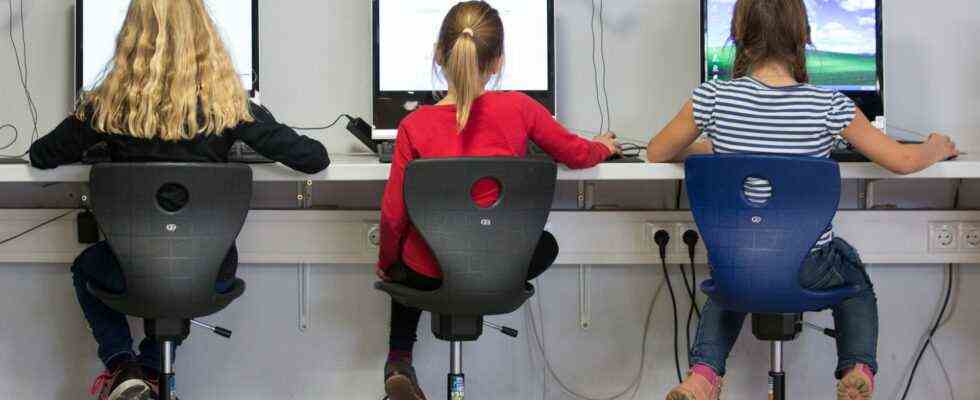Status: 07/21/2021 3:32 p.m.
Blackboard and chalk instead of tablet and smartboard. The corona pandemic revealed the deficits in many schools. The federal government had already provided billions of euros in 2019. High time to take stock.
There is actually enough money. As early as 2019, the federal government launched the multi-billion dollar “Digital Pact School”, which has since been supplemented by various corona aid. Some schools have benefited from it.
One example is the Lukas School in Munich. When the second lockdown came, things went very quickly at the Protestant private school: The digital infrastructure was expanded and all students who needed a tablet were equipped so that they could switch to online lessons at short notice – from elementary school to high school .
All of this thanks in part to government aid, emphasizes Managing Director Martin Wagner. There is funding for both the IT infrastructure and tablets for teachers and students. However, the procurement procedures are quite complicated, and you often have to go through an EU tender. “It’s very tedious and complicated – but you have to go through it,” says Wagner. But the bottom line is that he’s satisfied. The Lukas School has made a big step forward in terms of digitization – a kind of positive effect of Corona.
Industry association criticizes bureaucracy
Achim Berg is more critical. He is the president of the Bitkom association, which represents the digital economy. It is good that there are state funding programs – his association has always insisted on it. But in the specific case of a school, he had seen how complicated the application process was. You had to fill out more than 70 pages.
His conclusion is therefore not so rosy: “If you ask me whether the schools are ready when it comes to digitization, whether they are even equipped for another lockdown, then I have strong doubts – even if there are certainly positive exceptions. ”
What Berg suggests: In order to get the state funds, schools first had to formulate a detailed “pedagogical-technical deployment concept”, at least in the initial phase. Put simply: You had to describe in concrete terms in which form the digital tools should be used.
“It depends on the teachers”
But how should you do that when you still have far too little experience with the digital, asks Margit Stumpp, education and digital politician for the Greens in the Bundestag. She suggests changing the order: First, the digital infrastructure should be in place – from Internet connections to WLAN to devices – then the schools could develop the media programs necessary for funding.
The main problem for the insufficient digitization is that it has so far been a matter of chance whether a school makes progress here or not, according to the Green politician. “It simply depends on whether there are committed teachers on site who deal with the technology.”
Stumpp therefore suggests commissioning professionals who are responsible for looking after the IT infrastructure at the schools and answering users’ questions. But politicians have to make more money available for this.
Which brings up the problem of the follow-up costs of digitization: Apparently, many school expenditure providers shy away from applying for money from the “DigitalPact” because they fear that they will be left with the running costs for IT. That too is probably one of the reasons why so far only a fraction of the state funding has been paid out. It was almost 500 million euros at the end of 2020, of the more than six billion euros that were promised.
The sooner the better
The education researcher and pedagogue Wassilios Fthenakis warns against thinking about money alone when digitizing the education system: “An education system that wants to transform into the digital era has to do more than just provide an infrastructure,” emphasizes the Greek-German Scientist.
When asked what grade he would rate the digitization of schools with, he just got a “four minus”. There are still hardly any educational concepts for the use of digital devices in schools. Further training for teachers is also important. There is a lot of catching up to do here even after Corona, said Fthenakis. Almost all children today would grow up in their families with the Internet culture. Therefore, the earlier media education begins, the better.
School and digitization
Hans-Joachim Vieweger, ARD Berlin, July 21, 2021 2:11 p.m.

